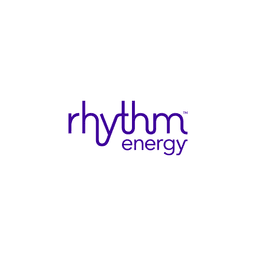In a traditional energy system, the utility provider is also the utility supplier. Not so in Texas. Texas' Energy Choice market allows the consumer to pick their energy supplier, with the Public Utility Commission of Texas stepping in from time to time to settle disputes and ensure customers are treated fairly.
Ninety percent of Texans live in what's called a deregulated energy market. A deregulated energy market provides more options for customers to buy electricity. Deregulated markets permit competing businesses to invest in power plants, transmission lines, and other infrastructure, selling these services to consumers. Residential and commercial customers purchase their power from Retail Electricity Providers (REPs), independent sellers of energy that buy power at wholesale from generators and sell that power back to customers.
More than a dozen other states have deregulated markets, but there's one Texas-sized difference between these states' deregulated grids and that of the Lone Star State's: Texas alone has its very own independent electric grid.
Texas' grid is divided up into three regions:
Eastern Interconnection
Western Interconnection
Electric Reliability Council of Texas (ERCOT)
The El Paso area, the Panhandle, and Northeast and Southeast Texas, belong to the Western and Eastern Interconnections. These regions' 1.2 million customers receive power from one of four investor-owned electric utilities that share their power with adjoining states (hence the name “Interconnection”). These regions are regulated. However, ERCOT is by far the biggest region of the three, engulfing most Texan energy generation and distribution. ERCOT is the only deregulated market in Texas, but because it holds the lion's share of Texas' energy, the Texan energy market is largely considered a deregulated market.
Why does Texas have its own power grid?
Texas does a lot of things differently, including the way it produces and distributes energy. We'll start with the deregulated market spanning most of Texas, ERCOT.
Electric Reliability Council of Texas (ERCOT)
The Electric Reliability Council of Texas (ERCOT) is the regional transmission organization and independent system operator for the ERCOT region. According to the Public Utility Commission of Texas (PUCT), ERCOT is responsible for the transmission of electrical power to over 26 million Texans, representing 90% of the state's electric load.
Within ERCOT, transmission and distribution utilities (TDUs) are tasked with maintaining distribution lines, substations, and meters that deliver electricity to consumers. TDUs don't sell electricity, but they are regulated by PUCT. In the ERCOT deregulated market, the REPs are responsible for managing the relationship between the customer and TDUs.
Non-regulated regions
Utilities outside of ERCOT are vertically integrated, meaning they own the means of generation, transmission, and distribution of electricity, as well as selling that electricity to consumers. These regions are serviced by the El Paso Electric Company, Southwestern Public Service Company, Southwestern Electric Power Company, and Entergy Texas, Inc. PUCT sets retail rates for each, but, because these regions share power with other states, the Federal Energy Regulatory Commission (FERC) has jurisdiction over wholesale power and transmission rates.
Electricity companies in Texas
Texan energy companies are broken into two groups:
Utilities maintain the infrastructure that delivers electricity to your home and are responsible for the safe, reliable transmission of electricity to customers. Utilities are regulated by the Texas Public Utilities Commission, the entity responsible for oversight of deregulated electricity markets and ensuring fair prices. Utilities also work with ERCOT in providing grid stability across the state. There are two other types of utilities:
Municipal utility: Owned and operated by the cities they serve.
Cooperative utility: Owned by the people they serve, primarily in rural areas.
Electricity providers supply or generate, the electricity that utilities deliver. Electricity providers also determine the rate you'll pay for electricity (the energy rate). Electricity providers own, maintain, and operate various coal, natural gas, hydro, solar, and wind power generation plants. Electricity providers are the folks you can thank for your monthly energy bill.
All-in, there are just four electricity providers in Texas:
AEP Texas (serves over one million people). AEP is unique in that it offers different plans based on where customers live.
CenterPoint Energy serves over 2.5 million people in the greater Houston area.
Oncor Electric Delivery serves over 10 million folks throughout the state, primarily in the Dallas-Ft. Worth area.
Texas-New Mexico Power (TNMP) is the smallest power company in Texas serving under 260,000 homes.
Picking an Electricity Plan in Texas
Before you start searching for the best Texas energy rates, it's important to understand your energy usage first. If you're planning a move to Texas, you should calculate your estimated energy usage before choosing the best electricity rate. If you're moving, ask the landlord or past occupants what their average energy usage was. You can also sign up for a short-term or pre-paid electricity plan and reassess once you know your average electrical use in your new home. If your electrical use is lower, you may be willing to pay a higher premium for certain services, such as renewable energy or more reliable services.
If you own or rent a home already, look at past electric bills and average out the months. However, keep in mind that you’ll need an electric service identifier, or esi id when you’re in the market for a new electricity plan in Texas, for either your home or business.
Average electricity rate in Texas
Texas' average 2020 residential rate was 11.96 cents per kWh. The average 2020 commercial rate was 7.74 cents per kWh. The average Texan home consumes 1,140 kWh a month, costing $136.30 in monthly bills.
Rhythm Energy's fixed-rate Texas Breeze 100% clean energy plans start at 10.2 cents per kWh. We offer 12, 24, and 36-month electricity plans with lowered rates for longer commitments.
Types of electricity plans
Fixed-rate Electricity Plans
Fixed electricity plans allow you to lock in a rate for up to three years. With a fixed plan, you don't have to worry about energy spikes during hot summers and cold winter days. There's no guesswork involved—you'll know what your energy rate is tomorrow morning, this fall, and all the way up until your contract ends. As a rule of thumb, the longer your fixed-rate plan is, the lower your electricity rate. Fixed-rate plans can be as short as three months, but the most popular fixed-rate energy plans are 12, 24, and 36 months.
The only potential downside to a fixed-rate plan is the rare occurrence that energy rates drop and you end up paying more than everyone else. It's a slim chance, but it could happen.
Variable Rate Electricity Plans
With variable rate plans, the amount you pay fluctuates with the market. This can mean your energy rate may change monthly or even hourly. The benefit of this type of plan is that if the market price goes down, so will your bill.
Pre-Paid Electricity Plans
Pre-paid electricity plans allow you to only pay for the energy that you need, potentially saving you money. With a pre-paid plan, you are required to pay for your electricity at a locked rate prior to using it. Pre-paid plans require no deposits, contract terms, or credit checks, making them a good option for folks who may be struggling financially and only need the bare minimum electricity. Pre-paid electricity plans lock-in costs, allow you to monitor consumption in real-time, force you to be conscious of your energy consumption, and give you greater flexibility than traditional contract plans.
Renewable Energy Plans
Texas is leading the nation in renewable energy generation (including wind power and solar power). You can take advantage of affordable green energy with a Texas renewable energy plan. Renewable energy plans provide clean power to consumers either through direct generation delivery of clean energy or by purchasing renewable energy certificates (RECs) to offset mixed grid energy sources. Renewable energy plans are a great way to support renewable energy efforts.
Rhythm Energy Renewable Electricity Plans in Texas
Rhythm Energy offers an alternative to the energy options in Texas's deregulated energy market. We have competitive prices, 100% renewable energy plans, and no hidden fees. There's never been a better time to switch to Rhythm Energy. Find out if Rhythm Energy electricity is available in your area.




